
Union Presbyterian Seminary is a Presbyterian seminary in Richmond, Virginia. It also has a non-residential campus in Charlotte, North Carolina and an online blended learning program.
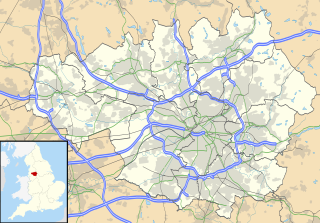
Whalley Range is an area of Manchester, England, about 2 miles (3.2 km) southwest of the city centre. The population at the 2011 census was 15,430. Historically in Lancashire, it was one of the earliest of the city's suburbs, built by local businessman Samuel Brooks.

Westminster College was a teacher training college and college of higher education in England. The college was founded in London in 1851 as a training institute for teachers for Wesleyan Methodist schools, but moved to Oxford in 1959. Before the move, it was part of the London Institute for Education. From 1959 to 1981, its qualifications were awarded by Oxford University. From 1981 to 1992, its qualifications were awarded by the CNAA. After 1992, its courses were validated by Oxford University again. In 2000, financial pressures caused the college to close. The Methodist Church subsequently leased the college's site at Harcourt Hill to Oxford Brookes University and it became the home of that university's Westminster Institute of Education.

Swinton is a town within the City of Salford in Greater Manchester, England, southwest of the River Irwell, 3.4 miles (5.5 km) northwest of Salford and 4.2 miles (6.8 km) northwest of Manchester, adjoining the towns of Pendlebury and Clifton. In 2014, it had a population of 22,931.
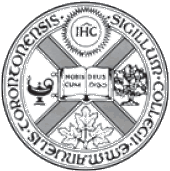
Emmanuel College is a theological college of Victoria University at the University of Toronto. Affiliated with the United Church of Canada, it is a member institution of the Toronto School of Theology. The current principal is Michelle Voss Roberts. Emmanuel College is a member of the Association of Theological Schools in the United States and Canada.

The Divinity School at Duke University in Durham, North Carolina, is one of ten graduate or professional schools within Duke University. It is also one of thirteen seminaries founded and supported by the United Methodist Church. It has 39 regular rank faculty and 15 joint, secondary or adjunct faculty, and, as of 2017, an enrollment of 543 full-time equivalent students. The current dean of the Divinity School is the Rev. Dr. L. Gregory Jones, who assumed the deanship on Aug. 2, 2018 after previously serving as dean from 1997 to 2010. Former deans include the prominent New Testament scholar Richard B. Hays, who stepped down in 2015.
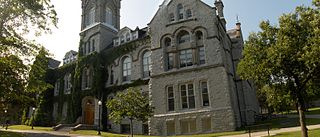
Queen's School of Religion, formerly Queen's Theological College, is affiliated with Queen's University at Kingston. Graduates receive their degrees from Queen's University. Queen's School of Religion is also accredited by ATS.

The Queen's Foundation, for Ecumenical Theological Education, is an ecumenical theological college which, with the West Midlands Ministerial Training Course, forms the Centre for Ministerial Formation of the Queen's Foundation for Ecumenical Theological Education. It serves the Church of England and the Methodist Church, and its courses thus have a strong ecumenical emphasis.

Arthur James Moore was an American Bishop of the Methodist Episcopal Church, South (MECS), the Methodist Church, and the United Methodist Church, elected in 1930.
Vancouver School of Theology is a multi-denominational divinity school located on the campus of and formally affiliated with the University of British Columbia.
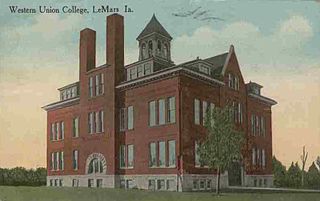
Westmar University was a private four-year liberal arts college in Le Mars, Iowa, United States. It permanently closed on November 21, 1997.

The United Methodist Church in Great Britain was a Protestant denomination which operated from 1907 to 1932. It was a relatively small grouping of British Methodism, formed in 1907 by the union of the United Methodist Free Churches with two other small groupings, the Bible Christian Church and the Methodist New Connexion.
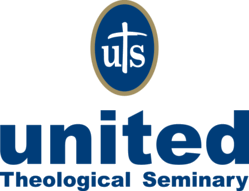
United Theological Seminary is a United Methodist seminary in Trotwood, Ohio. Founded in 1871 by Milton Wright, it was originally sponsored by the Church of the United Brethren in Christ. In 1946, members of the Church of the United Brethren in Christ merged with the Evangelical Church to form the Evangelical United Brethren Church, with which the seminary then became affiliated. When that denomination merged with The Methodist Church in 1968, United Theological Seminary became one of the thirteen seminaries affiliated with the new United Methodist Church.
Elmfield College, York (1864–1932), originally called Connexional College or Jubilee College in honour of the Primitive Methodist Silver Jubilee in 1860, was a Primitive Methodist college on the outskirts of Heworth, York, England, near Monk Stray.
John Wesley University was a private interdenominational Christian college in High Point, North Carolina. In 2018, the university merged into Piedmont International University in Winston-Salem.
Arthur Samuel Peake (1865–1929) was an English biblical scholar, born at Leek, Staffordshire, and educated at St John's College, Oxford. He was the first holder of the Rylands Chair of Biblical Criticism and Exegesis in the University of Manchester, from its establishment as an independent institution in 1904. He was thus the first non-Anglican to become a professor of divinity in an English university.
Sir William Pickles Hartley, jam manufacturer and philanthropist, founded the Hartley's jam company. He was born in Colne, Lancashire and attended a local British and Foreign School Society school.

Methodist views on the ordination of women in the rite of holy orders are diverse.
The Wesleyan Methodist was the name used by the majority Methodist movement in England following its split from the Church of England after the death of John Wesley and the appearance of parallel Methodist movements. The word Wesleyan in the title differentiated it from the Welsh Calvinistic Methodists and from the Primitive Methodist movement, which separated from the Wesleyans in 1807. The Wesleyan Methodist Church followed the Wesleys in holding to an Arminian theology, in contrast to the Calvinism held by George Whitefield, by Selina Hastings and by Howell Harris and Daniel Rowland, the pioneers of Welsh Methodism. Its Conference was also the legal successor to John Wesley as holder of the property of the original Methodist societies.

The Didsbury Campus on Wilmslow Road, Didsbury, Manchester, England, originally a private estate, was part of the Manchester Metropolitan University; the oldest building on the site dated to around 1785. It became a theological college for the Wesleyan Methodist Church in 1842, about the same time as a chapel which later became part of the college was built. These buildings are now all listed.











